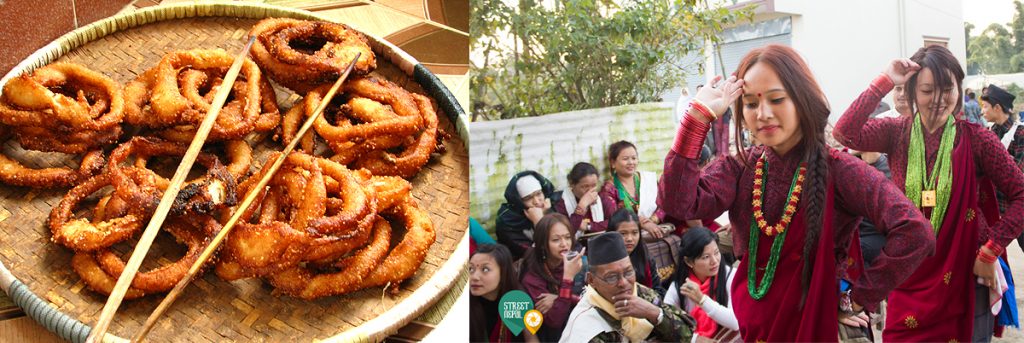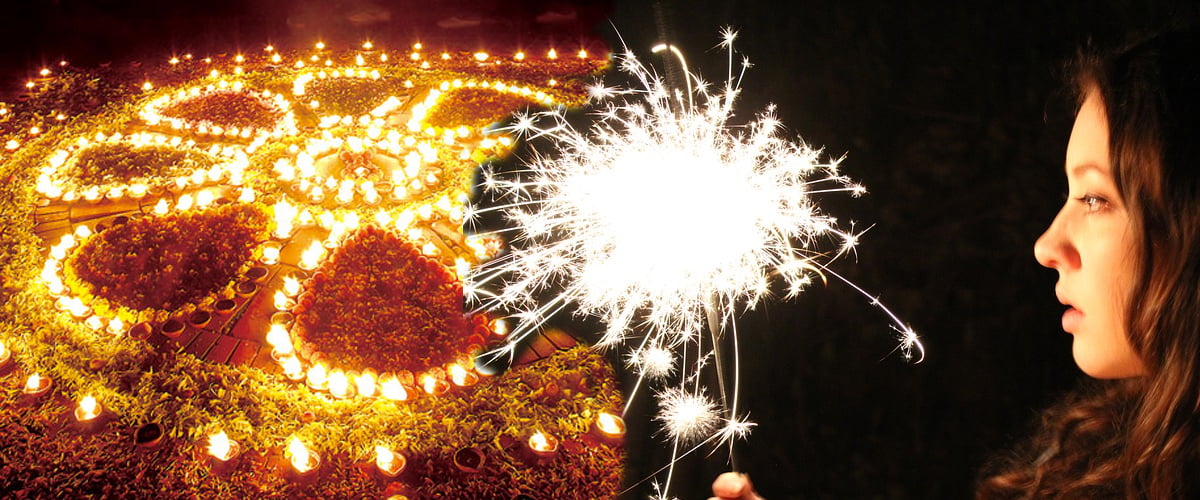If Nepal is a tree, then its branches are the ethnicities and the leaves on the branches are their respective festivals. Festivals are the occasions where the values of the cultures are celebrated. They are also celebrated to mark the victory of gods over evils. They are also a traditional way of expressing the gratitude towards the gifts of nature. Festivals reflect the norms and beliefs of the people of respective ethnic groups and religions. Tihar is one of those widely celebrated festival of our country. Tihar is the festival of Hindus. In Nepal, the people all around the country celebrate it. Tihar is also known as the festival of lights. Tihar is popularly known as ‘Dipawali’, ‘Yamapanchak’ and ‘Swanti’ (by the people of Newar community).
It is believed that, Yamuna’s brother fell on terribly ill and was on the verge of death. As per the belief, the god of death, Yamraj reached there to take the life way from body.
Yamuna requested the god to let her worship her brother for the final time. During puja, she put the tika on her brother’s forehead and put on the garland of ‘Makhamali Phul’. Because of this practise, brothers are worshipped by sisters about which we’ll be talking later again.
Tihar is celebrated for five days. Hindu people worship different animals on different days. Yes, you read that right! Animals are celebrated with very deep devotion. The festival begins on Trayodasi of Kartik Krishna Paksha. The first is called Kaag(Crow) tihar. Yes, you guessed that right, crows are worshipped on Kaag tihar. Crow is considered as the messenger of the god of death. So to please the crow and so as to please Yamaraj, crow in worshiped.
The second day belongs to the Dogs.A dog is appreciated for its loyalty. This has started a long back in history of time. During the journey of Pandavas, a dog was the only company with Yudhisthira. The dog was following loyally in the path of heaven along Yudhisthira. Moreover, dog is also considered as the vehicle of Bhairava. The god of death also had two dogs with four eyes each for the protection of Narka (hell). People put garlands and tika on the dog and offer foods like meat, milk and dog foods to it. Isn’t it beautiful?
On the third day, people show their devotion towards the goddess of wealth, Laxmi. Hence, this day of the festival is called Laxmi Puja. People light their houses with traditional ‘Diyo’ and also electric lights in the present days. This day radiates the most beautiful vibes. The whole nation is decorated by the lights during the night. The colored powders are used to make beautiful designs on the compound of the house, the artistic draw is called Rangoli. Females fast on this day and worship the goddess at evening. People also play Dheusi Vailo at the bright night of Laxmi Puja. Dheusi Vailo is a traditional practise of singing and dancing form door to door. Friends often gather together and enjoy the singing and dancing. They are offered Dakshina(money), fruits, Sel Roti and handful of rice in general from the owners. In beliefs, King Bali had initiated traditional Dheusi Vailo. Cows are also valued in the worships on this day. Cows provide us the milk and the worship is a kind of gratitude expressed. Like the other animals, people worship cow for its relationship with humans. Cow is regared as the goddess Laxmi in Hindu Mythology.

And which Hindu is unaware of the love of Lord Krishna for cows. Crackers are also in the watch out list. Crackers magnifies the glory of the festival through the sounds. The sounds of crackers echoes everywhere during Tihar. Different types of crackers are available in the market which definitely enhances the joy of this already joy-rich festival. People of all age groups are seen reflecting their happiness through the crackers.
On the fourth day, ox is worshipped. Ox helps in ploughing the field and grow crops in the field. People also worship Govardan Parbat. They worship the pile of cow dung which resembles the Govardan Prabat.
Bhai tika falls on the fifth and final day of Tihar. Sisters worship their brothers on this auspicious day. The practise is the replication of the worship done by Yamuna for her brother. Sisters put the tika on the forehead of brothers which consists of seven different colors. The tika extends vertically on the forhead. The puja is generally done on the certain time which is regarded as the most auspicious. The brothers also put the tika on the sisters’ forehead. The special garland made up of makhani flower is also placed around the brother’s neck. The garland of Marigolds are also seen being used nowadays. Sisters also groom the brothers during the puja. Sisters offer various kinds of fruits, sweets, dry fruits and other tastier dishes and in return they receive either gifts or money from the brother. In this way, the exhilarating festival comes to and end for the year.
Festivals relieve people from their sorrows. It brings the family and relatives under the common shelter for a few days in the hectic lifestyle of modern days. Tihar, not only entertains people but also teaches everyone to be responsible and respectful towards the mother nature. “For every gifts a man receives from the nature, he must be grateful towards it.” In the modern world where the environment is jeopardised recklessly, Tihar constantly reminds us to take care of it.
So, the festival of lights not only holds the religious believes but also emphasizes on nature conservation. Apart from this, Tihar also unifies the whole nation into a single garland of different flowers. Tihar, well abides by the statement – ‘Unity in diversity’.
-Article written by: Suyash Dhakal for Land Nepal




